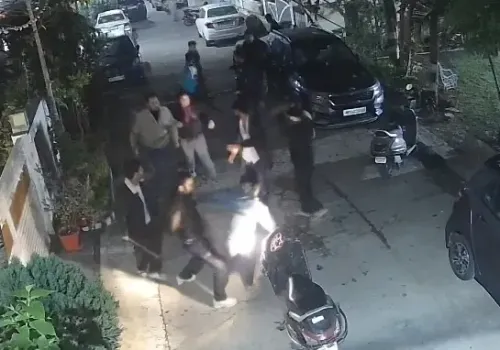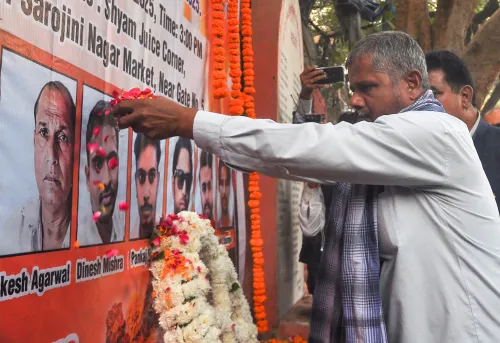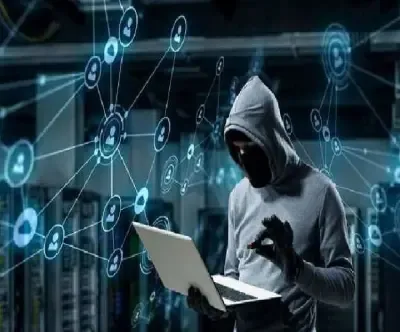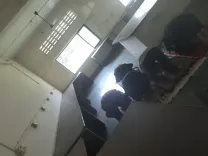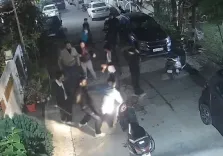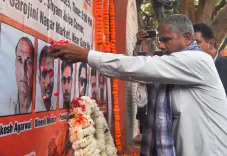Is India Secure Under PM Modi? Farooq Abdullah Discusses Pahalgam Attack Fallout
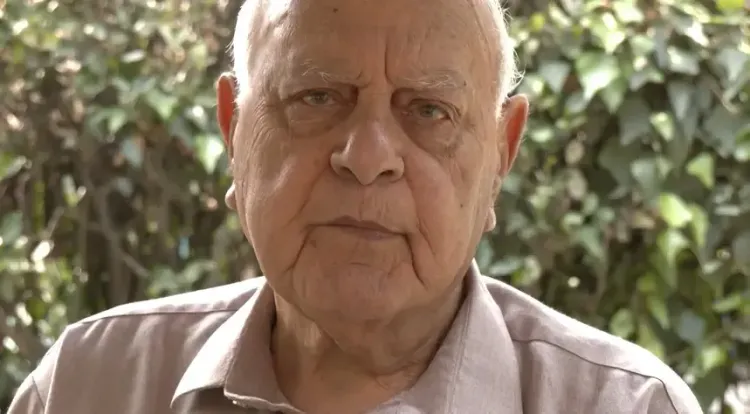
Synopsis
Key Takeaways
- Farooq Abdullah condemned the Pahalgam terror attack.
- He called for strict action against those responsible.
- Confidence expressed in Prime Minister Modi's leadership.
- Highlighted Pakistan's historical role in terrorism.
- Advocated for a caste census and renegotiation of the Indus Water Treaty.
New Delhi, May 2 (NationPress) The President of Jammu and Kashmir National Conference, Farooq Abdullah, vehemently criticized the recent terrorist attack in Pahalgam, Jammu and Kashmir, which resulted in the tragic loss of 26 innocent lives. He emphasized the necessity for decisive action against those responsible for this heinous act and expressed confidence that Prime Minister Narendra Modi is safeguarding India.
In a candid interview with IANS, Abdullah addressed Pakistan's involvement in terrorism and urged for stringent measures against the attackers from the recent Pahalgam incident. He also touched on topics including the Indus Water Treaty and the caste census.
Here’s an excerpt from the interview:
IANS: How do you view the Pahalgam terror attack?
Farooq Abdullah: The Pahalgam incident is deeply distressing. Such actions represent a betrayal of humanity. Those behind this atrocity deserve the harshest condemnation. They must be apprehended and punished in a manner that sets a precedent.
IANS: Do you believe Pakistan is involved in the Pahalgam attack?
Farooq Abdullah: The culprits could be anyone. Until we apprehend them, we cannot ascertain their identities. The masterminds are likely the same as before. This is not a new occurrence. Similar attacks have happened in Uri, Pulwama, Mumbai, Pathankot, and Rajouri. The orchestrators are operating from within Pakistan.
IANS: Was this a premeditated attack by Pakistan?
Farooq Abdullah: Pakistan is uncomfortable seeing us live in peace, especially with the influx of tourists in Kashmir. Since 1947, their aim has been to destabilize our tranquility.
IANS: Can India regain control of Pakistan-Occupied Kashmir?
Farooq Abdullah: That is a matter for the Prime Minister to decide. I cannot provide any guidance on this issue.
IANS: Is the nation safe in the hands of the Prime Minister?
Farooq Abdullah: If safety were a concern, he wouldn’t hold the office of Prime Minister. He is responsible for every citizen in India.
IANS: What are your thoughts on the expulsion of Pakistanis from India?
Farooq Abdullah: Families that have resided here for decades are being displaced. They have children who are Indian citizens. This action raises questions about fairness.
IANS: Could the Waqf Act be linked to the Pahalgam attack?
Farooq Abdullah: The Waqf Act and the Pahalgam incident are unrelated. The Waqf case is currently under judicial review, and we trust the Supreme Court to address it appropriately.
IANS: Is there a possibility that local Kashmiris were involved in the Pahalgam incident?
Farooq Abdullah: I suspect external support was necessary for such an operation. The logistics of the attack indicate that local assistance was likely.
IANS: Should India consider stopping Pakistan's water supply?
Farooq Abdullah: This treaty should be revisited. We generate energy from this water, yet others monitor it. We have a right to our resources, especially given the water scarcity in Jammu.
IANS: Who is accountable for the Pahalgam incident?
Farooq Abdullah: We are approaching a critical juncture. Now is not the time to assign blame but to take decisive action. After the situation stabilizes, a thorough investigation should take place.
IANS: What are your thoughts on the caste census?
Farooq Abdullah: A caste census is essential. It will provide clarity on our demographics and highlight the diversity of our nation.
IANS: Is the country prepared for war?
Farooq Abdullah: The ultimate decision lies with the Prime Minister. He has empowered military leaders, but the final command rests with him.
IANS: Is war the only viable solution?
Farooq Abdullah: Examining the Russia-Ukraine conflict reveals the devastation that war brings. Diplomatic efforts should be prioritized. Terrorism affects everyone, as seen in the aftermath of 9/11. We must engage in dialogue to address these issues.


